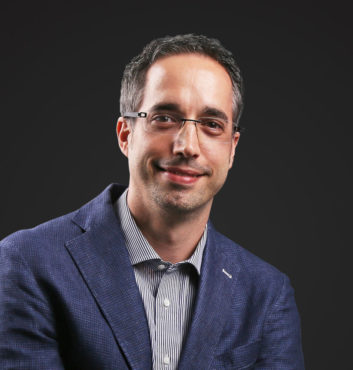 If you had to select a few milestones in the development of your environmental policy & processes over the last 10 years, what would they be and why?
If you had to select a few milestones in the development of your environmental policy & processes over the last 10 years, what would they be and why?
In 2014, the Huizhou Intelligent Manufacturing Center was inaugurated, which improved production efficiency and reduced power consumption and scrap rate significantly.
In 2018, the MES intelligent manufacturing system was introduced to speed up the digitalisation process. As a result, Absen further reduced work-in-progress and improved the one-time pass rate of finished products, reducing scrap.
In 2021, Absen started to promote its eight major standards for LED displays globally, in response to the policies in China, North America and Europe and other countries, taking a lead in the sustainable development of our industry. All of our products meet the RoHS environmental protection standard.
In 2022, Absen continued to actively promote its “green and environmental protection” approach on a global scale, with a particular attention to the users’ environment and personal health.
Can you provide a specific example or two of how the desire to manufacture more sustainably has impacted upon your production processes? (Please include discussion of your Green AV Initiative.)
Promote materials that meet RoHS’ green environmental protection requirements, such as: PCB pad surface treatment uses OSP process instead of tin spray process ; and green materials such as lead-free solder paste, tin bars, and tin wires are used for welding materials; lead solder paste and tin bars are replaced with lead solder paste and tin bars, tin wire and other non-environmentally friendly materials; our entire supply chain implements recyclable and reusable packaging materials to replace single-use non-recyclable packaging materials.
Similarly, can you outline some of the ways in which you are working to make your products less impactful during (eg. energy efficiency) and at the end of their operational lives (eg. disposal/recycling)?
Material selection of products: All products produced by Absen’s intelligent manufacturing system meet the new RoHS2.0 (2011/65/EU) directive, and harmful substances such as lead, mercury, and cadmium meet the standards of human health and environmental protection.
Product energy-saving: The more energy-saving the LED display is, the less electricity is used in the same area (including display screens, air conditioners, etc.), and the calorific value is lower, which is conducive to saving energy and protecting the environment.
The Absen standard is much higher than the industry’s 600-800W/㎡ products. Take the Absen A1021D product as an example: at 10000 nit brightness, maximum power consumption is only 260W/㎡, and standby power consumption is only 21W/㎡, and it can intelligently adjust the brightness according to the environment. Adjusting the brightness of the display reduces light pollution while saving energy.
High quality of products: good stability and long service life.
With many territories implementing more stringent carbon & environmental impact reporting, can you give me a sense of how your activities in this area are evolving?
In 2021, Huizhou Intelligent Manufacturing Center has implemented and passed the ISO50001 energy management system certification, and implemented energy conservation and emission reduction on four areas: product design, process innovation, supply chain management, and base operation. 12.8%, and the energy consumption per unit product decreased by 17.8%.
All power supplies of all Absen products are equipped with PFC function (Power Factor Correction), and the power conversion efficiency is as high as 90%, providing customers with more favorable energy-saving conditions.
Do you think there is scope for more universal action on these issues by pro AV? What would you like to see happen on an industry-wide level over the next few years?
Yes, the pro-AV industry, from manufacturers to end users are more aware of health and safety as a topic. The concept of “green environmental protection” getting visibility and traction in our industry, as does the global demand for more sustainable development for the environment. By taking practical actions, from a safety, health, environmental protection, quality, social responsibility, etc., by truly considering sustainable development, and by optimising products and processes, we believe we can not only have a competitive advantage but also be more sustainable over time.
We hope that our industry peers will work together towards a sustainable development for LED, strive to promote the progress of industry standards, and aim for an environment that is not only Absen green, but industry green.
Click here for our special report on sustainability in AV.







